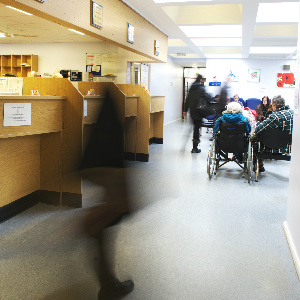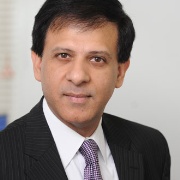Debate: Will the 48-hour appointment target improve care for patients?


YES
Most public surveys I have seen recently on the NHS have placed access to GP surgeries as the biggest problem the organisation faces – just last week I saw the results of one survey from across the whole of Lincolnshire that said as much.
MPs and others hear the same as they go round, and so it is inevitable that politicians will respond – indeed, it is their job to represent the views of their constituents.
It is a fact that we have not only failed to maintain prompt access to GPs, but that standards have actually slipped. This is partly due to changes in demand, but it is also partly due to GPs lapsing into old methods of managing it.
I even know of a few surgeries that have ceased to provide any weekend service, and yet the partners still work four or four and a half days a week as though they still did. When many in the rest of society are taking pay cuts, that behaviour doesn’t sit well. Therefore, raising access as a major NHS issue is perfectly legitimate.
Furthermore, the Labour proposal is more nuanced than just reinstating the 48-hour target.
My understanding is that it recommends GPs offer patients consultation by any means within 24 hours. If the patient needs it, then GPs should endeavour to book them an appointment with a GP or nurse within 48 hours. Patients should also be able to book ahead to see the GP of their choice, whenever that may be.
Labour also indicates there would be incentives available to help GPs fulfil these recommendations in doing that.
Meeting these targets is doable, provided practices embrace the digital revolution as a means of managing demand, which they should anyhow.
However, simply calling for more resources without reform is not realistic in the age we live in.
Professor Sir John Oldham is a former GP from Glossop, Derbyshire, who has led a review on health policies for Labour.

NO
All GPs would like their practices to offer good routine access for patients but exponential rises in patient demand has far outstripped capacity in general practice.
Despite this, practices rightly continue to offer clinically urgent appointments on a same day basis if necessary, which means that routine appointment waits have, necessarily, increased to over one week in some practices.
GPs are working harder than ever before and can give no more. According to a recent BMA survey, almost all GPs reported working beyond their contracted hours regularly, while six out of ten GPs were considering retiring early.
Introducing a new 48-hour target will do nothing to address these underlining, crippling problems. It risks distorting clinical priorities as practices will be incentivised create systems to achieve targets, rather than the clinical needs of their patients.
Neither do they promote self care, to ensure that GP services are used appropriately. Rather than managing public expectation on a service that is overstretched, these access targets will stoke demand which cannot be met.
The proposed investment of £100 million is less than 0.1 per cent of the NHS budget, and equates to a mere £2 per patient. This simply fails to grasp the true funding gap in general practice.
GPs are not against change, and are willing to work differently and embrace new technologies where appropriate, but they are dismayed and frustrated at not being able to provide patients with the care they need.
This is why the BMA has just launched the new ‘Your GP cares’ campaign which tackles head on the underlining problems facing GP services, and reasons for delays in getting a GP appointment.
We need long term, sustainable investment in GP practices, their staff and their premises, so that we truly develop a service fit for the demands of the 21st century. Anything short of this will be offering the public a false solution that will do nothing to improve their care.
Dr Chaand Nagpaul is the chair of the GPC and a GP in north west London.
Pulse July survey
Take our July 2025 survey to potentially win £1.000 worth of tokens











